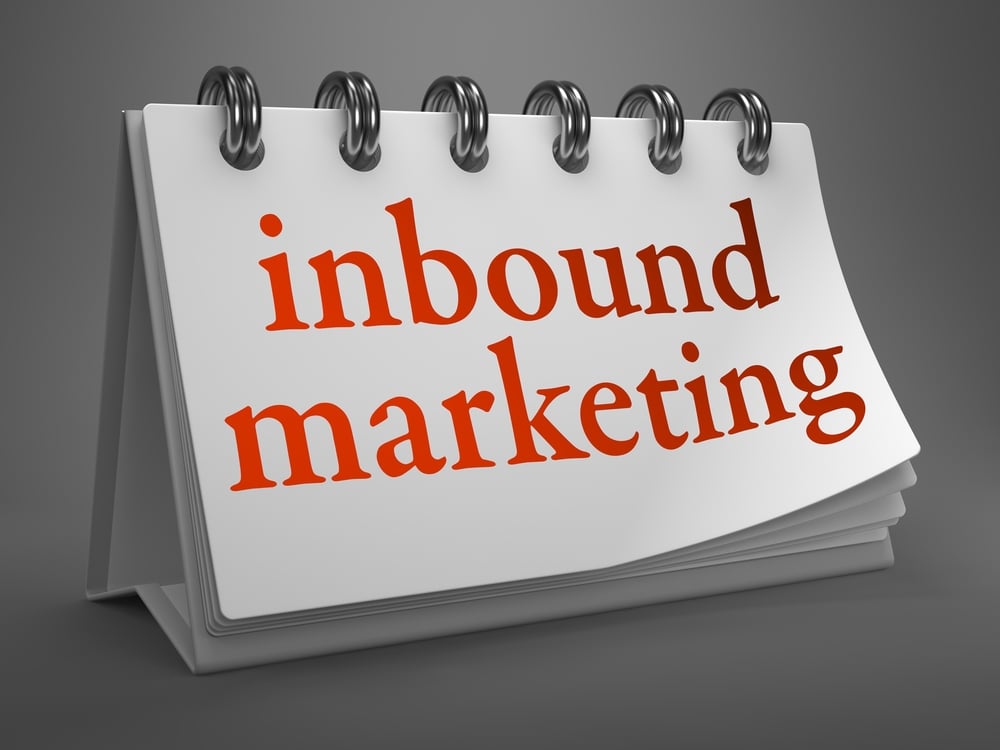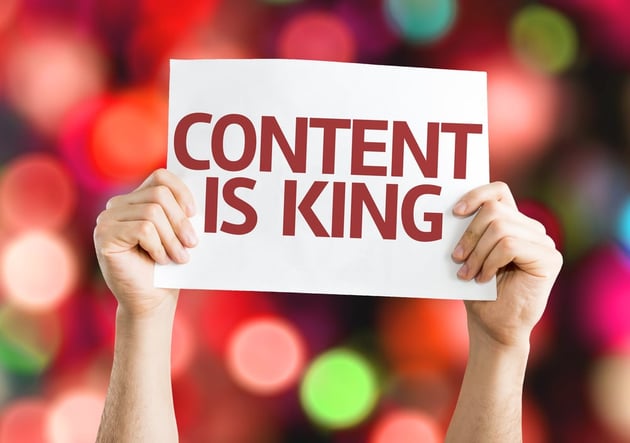Preparing Your Marketing Team for the AI Revolution in Inbound Marketing
-
AI in digital marketing: Transforming campaigns with personalization, increased productivity, and optimized ad performance. 70% of high-performing marketing teams already embracing AI strategies
-
Building a future-ready team: Identifying key skills, investing in AI tools, and providing training and upskilling opportunities.
-
Overcoming challenges: Addressing potential job displacement, ethical implications, and staying up-to-date with recent developments in artificial intelligence.
Table of Content
- Defining AI and its Impact on Inbound Marketing
- Building Your Marketing Team for the AI Revolution
- Potential Challenges and Preparing for the Future
- Conclusion
Introduction
Artificial intelligence is making waves in the marketing world, transforming how businesses engage with target audiences and optimize campaigns. With a whopping 70% of high-performing marketing teams already embracing a well-defined AI strategy (Source: Salesforce, State of Marketing), it's time to get your team up to speed.
In this post, we'll dive into the impact of artificial intelligence on inbound and share some actionable tips to ensure your team stay ahead.
Defining AI and its Impact on Inbound Marketing
Artificial Intelligence (AI) refers to machines or software that can perform tasks that usually require human-like thinking, such as problem-solving, learning, and understanding language. One powerful type of AI is large language models, like GPT-4, which can process, generate, and understand human language.
These models are trained on vast amounts of text, allowing them to predict and generate coherent sentences.
Artificial intelligence has the potential to transform digital marketing through helping create engaging content, audience targeting, engagement, and customer retention.
By intelligently analyzing user behavior and preferences, AI-driven strategies help create personalized experiences, ensuring that the right message reaches the right person at the right time, ultimately increasing the effectiveness of marketing campaigns.

Advantages of AI in improving marketing efforts
As the digital marketing landscape evolves, AI is proving to be a game-changer in driving success for businesses. Let's check out some of the perks AI brings to the table when it comes to enhancing your marketing efforts:
-
Personalization: With AI and machine learning, you can swiftly and effectively analyze heaps of data, empowering you to create more personalized and effective campaigns for your audience.
-
Increased Productivity: AI tools can automate time-consuming and mundane tasks, and assist with content creation, ad targeting, or social media posting, freeing up your team to focus on bigger fishes.
-
Improved Analytics: Leveraging AI technologies like predictive analytics and deep learning enables you to make data-driven decisions by unveiling valuable insights into consumer behavior trends and preferences.
-
Enhanced Customer Experience: By harnessing AI's power to understand customer needs and desires through NLP, you can offer tailored experiences that boost satisfaction and retention.
-
Optimized Ad Performance: Platforms like Google Ads have integrated AI algorithms that allow you to fine-tune your ad targeting strategies based on real-time performance results.
-
Rise of Chatbots: Embedding AI-driven chatbots on websites or social media platforms lets users receive instant support 24/7 while freeing up valuable resources within your company.
-
Streamlined Content Creation: AI-generated content tools help you whip up engaging blog posts or social media posts in record time by analyzing trending topics within your target market and suggesting relevant ideas.
-
Competitive Advantage: Staying one step ahead with cutting-edge technology will give you a significant edge over competitors who are slow to adapt to the emerging world of artificial intelligence in digital marketing.
By welcoming the opportunities offered by AI in inbound marketing, your team will be better equipped to connect with potential customers, fine-tune campaigns for maximum impact, and ultimately reach your business goals in this fast-paced digital landscape.
Building Your Marketing Team for the AI Revolution
Ready to build a marketing team that's geared up for what's ahead? It's all about identifying the right skills, hiring specialists, investing in the right tools, and offering training and upskilling opportunities.
Identifying necessary skills and knowledge
It's crucial to pinpoint the essential skills and knowledge that will enable your team to harness the full potential of strategies enhanced by artificial intelligence. Equipping your team with these competencies will not only keep them ahead of the curve but also enhance their ability to create better campaigns and generate more leads. Here are some key skill sets to prioritize:
-
Data Science Expertise: Team members should have a firm grasp of data analysis and statistics, enabling them to interpret data, spot trends, and make informed decisions.
-
Natural Language Processing Skills: As AI-generated content becomes increasingly prevalent, your team must be adept at using NLP techniques for tasks such as sentiment analysis or keyword extraction.
-
Proficiency in AI-Powered Tools: Team members should be well-versed in using cutting-edge AI tools like Google Analytics, Google Ads, and other platforms that help streamline marketing efforts.
-
Critical Thinking Abilities: Marketers need to think critically about leveraging AI tools to achieve their goals while maintaining a human touch in their interactions with customers.
-
Ethical Considerations: Ensure that your team understands the ethical implications to mitigate potential risks associated with technology misuse or unintentional consequences on customer experience.
-
Adaptability and Continuous Learning Mindset: Encourage an atmosphere where staying up to date about new developments in AI technology is highly prioritized, fostering a culture of continuous learning and growth within your organization.
With these vital skills and knowledge areas under your marketing team's belt, they'll be well-equipped to tackle today's dynamic digital environment and actively embrace the transformative power of AI in digital marketing.
Providing training and upskilling opportunities
One of the most crucial steps in prepping your team is to offer them the necessary training and upskilling opportunities. Digital marketers need to know how to leverage AI tools and technology to stay ahead of the curve.
There are loads of free courses, guides, and certificate programs focused on AI and its applications in digital marketing that can help employees upskill quickly. Additionally, leaders can train their employees in AI skills, not just in the tech industry.
In the end, your business's success hinges on staying up to date about new technologies that continue to transform digital marketing strategies like HubSpot, large language models, and other tools that can help your team become more effective.
Potential Challenges and Preparing for the Future
Let's face it—embracing AI comes with its fair share of challenges. So, it's essential to address potential job displacement, and the ethical implications of AI, stay updated, and gear up for the future.
Addressing potential job displacement
The big question on everyone's mind is, "Will AI take our jobs?" Well, although some roles might get automated or streamlined, marketing teams shouldn't necessarily hit the panic button.
For example, rather than manually analyzing data or creating social media posts from scratch, AI-powered tools can automate these processes while still leaving room for human creativity and critical thinking.
As a result, it's important for businesses to invest in training programs that help employees learn how to leverage AI in their day-to-day tasks. This might involve bringing in specialists or working with recruitment agencies to find candidates with relevant skills.

Addressing the ethical implications of AI
As AI continues to reshape the digital marketing landscape, we must address the ethical implications of its use in marketing. AI development and implementation bring moral questions about consumer privacy, accurate data, and algorithmic bias to the table.
To avoid potential legal challenges, stay informed about regulations like the GDPR (General Data Protection Regulation), which requires companies to be transparent about using consumer data.
Staying up-to-date with developments in AI
Want to stay ahead in the AI revolution? Here are some tips to keep you in the loop:
-
Learn from thought leadership resources like blogs, webinars, and podcasts.
-
Attend industry conferences and events to network with experts and discover cutting-edge technologies and strategies.
-
Use AI-powered tools like Google Analytics and HubSpot's Marketing Hub to track customer data, automate tasks, create engaging content, and run targeted campaigns.
-
Follow relevant social media accounts for updates on new technology releases, case studies, training opportunities, and AI-related news in digital marketing.
-
Foster a culture of innovation within your company by prioritizing ongoing education and experimenting with new technologies.
By staying informed, you'll be better equipped to use AI tools in your marketing efforts and craft more personalized experiences for your target audience.
Preparing for the future of marketing with AI
As AI continues to revolutionize all aspects of our lives, leaders and managers need to prepare their teams for what's coming. This means identifying required skills and knowledge, investing in AI-powered tools, and providing training opportunities for upskilling. Additionally, tackling potential job displacement and the ethical implications of AI is a must.
Stay up-to-date with AI technology and strategy developments to stay ahead of the curve while using AI tools to create targeted campaigns, automate tasks, analyze customer data, enhance customer satisfaction through personalized experiences, and achieve business goals.
Frequently Asked Questions
What is the impact of AI on inbound marketing?
AI has a significant impact on inbound marketing by streamlining and automating various aspects, ultimately leading to better results.
-
Streamlines lead generation
-
Enhances customer segmentation and personalization
-
Automates content creation
-
Analyzes data for campaign optimization
How should you prepare your marketing team for the AI revolution?
Preparing your team for the AI revolution requires training, hiring experts, and fostering collaboration within your organization.
-
Work with AI experts and trainers to upskill and develop your team
-
Hire AI experts with specialized knowledge
-
Establish systems for efficient collaboration
What kinds of skills are necessary for marketers to adapt to AI?
Marketers need a mix of creative, analytical, and technical skills to adapt.
-
Creative problem-solving
-
Critical thinking and optimization strategies
-
Analytical skills to understand data insights
-
Technical prowess to work with complex algorithms
Should businesses worry about job loss due to automation brought by AI technologies?
Although some job loss is inevitable, businesses should focus on developing new capabilities and shaping employee skill sets rather than fearing automation.
-
Embrace AI for simplified workflows
-
Develop new capabilities for employees
-
Leverage emerging technologies without impacting the bottom line
-
Adapt employee skill sets to AI-driven changes
Conclusion: Embracing AI in Inbound Marketing
To sum up, the current momentum of AI is unstoppable, and businesses must prepare themselves for the changes ahead. With a clear strategy, upskilling opportunities, and investments in AI-powered tools, companies can leverage AI to transform their marketing efforts.
Though challenges like job displacement or ethical implications may arise, staying informed about AI technology and strategy developments will keep businesses ahead of the curve.
By embracing AI-generated content creation, targeted campaigns, ad targeting, and more, we can create great experiences for consumers while effectively achieving business goals.
Now it's your turn!







